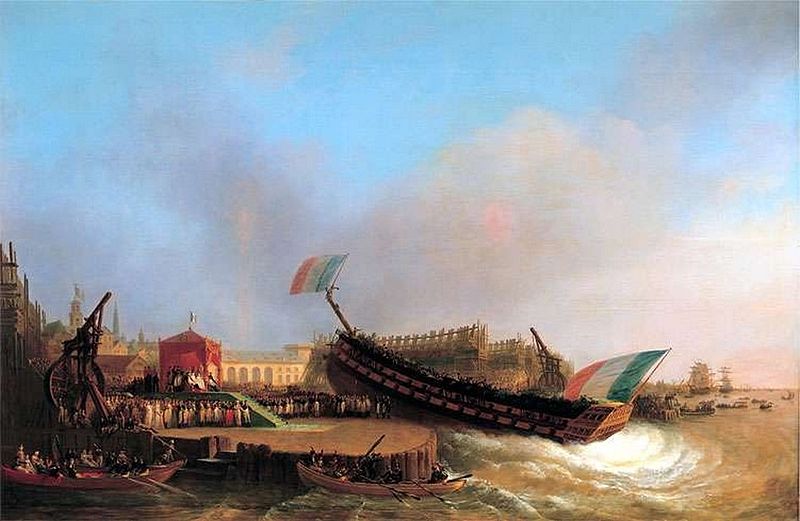|
SM UC-92
SM ''UC-92'' was a German Type UC III minelaying submarine or U-boat in the German Imperial Navy (german: Kaiserliche Marine) during World War I. Design A German Type UC III submarine, ''UC-92'' had a displacement of when at the surface and while submerged. She had a length overall of , a beam of , and a draught of . The submarine was powered by two six-cylinder four-stroke diesel engines each producing (a total of ), two electric motors producing , and two propeller shafts. She had a dive time of 15 seconds and was capable of operating at a depth of . The submarine was designed for a maximum surface speed of and a submerged speed of . When submerged, she could operate for at ; when surfaced, she could travel at . ''UC-92'' was fitted with six mine tubes, fourteen UC 200 mines, three torpedo tubes (one on the stern and two on the bow), seven torpedoes, and one SK L/45 or Uk L/30 deck gun. Her complement was twenty-six crew members. Construction, career and demise ... [...More Info...] [...Related Items...] OR: [Wikipedia] [Google] [Baidu] |
German Empire
The German Empire (), Herbert Tuttle wrote in September 1881 that the term "Reich" does not literally connote an empire as has been commonly assumed by English-speaking people. The term literally denotes an empire – particularly a hereditary empire led by an emperor, although has been used in German to denote the Roman Empire because it had a weak hereditary tradition. In the case of the German Empire, the official name was , which is properly translated as "German Empire" because the official position of head of state in the constitution of the German Empire was officially a " presidency" of a confederation of German states led by the King of Prussia who would assume "the title of German Emperor" as referring to the German people, but was not emperor of Germany as in an emperor of a state. –The German Empire" ''Harper's New Monthly Magazine''. vol. 63, issue 376, pp. 591–603; here p. 593. also referred to as Imperial Germany, the Second Reich, as well as simply Germa ... [...More Info...] [...Related Items...] OR: [Wikipedia] [Google] [Baidu] |
Length Overall
__NOTOC__ Length overall (LOA, o/a, o.a. or oa) is the maximum length of a vessel's hull measured parallel to the waterline. This length is important while docking the ship. It is the most commonly used way of expressing the size of a ship, and is also used for calculating the cost of a marina A marina (from Spanish , Portuguese and Italian : ''marina'', "coast" or "shore") is a dock or basin with moorings and supplies for yachts and small boats. A marina differs from a port in that a marina does not handle large passenger ships o ... berth (for example, £2.50 per metre LOA). LOA is usually measured on the hull alone. For sailing ships, this may ''exclude'' the bowsprit and other fittings added to the hull. This is how some racing boats and tall ships use the term LOA. However, other sources may include bowsprits in LOA. Confusingly, LOA has different meanings. "Sparred length", "Total length including bowsprit", "Mooring length" and "LOA including bowsprit" are oth ... [...More Info...] [...Related Items...] OR: [Wikipedia] [Google] [Baidu] |
German Type UC III Submarines
German(s) may refer to: * Germany (of or related to) **Germania (historical use) * Germans, citizens of Germany, people of German ancestry, or native speakers of the German language ** For citizens of Germany, see also German nationality law **Germanic peoples (Roman times) * German language **any of the Germanic languages * German cuisine, traditional foods of Germany People * German (given name) * German (surname) * Germán, a Spanish name Places * German (parish), Isle of Man * German, Albania, or Gërmej * German, Bulgaria * German, Iran * German, North Macedonia * German, New York, U.S. * Agios Germanos, Greece Other uses * German (mythology), a South Slavic mythological being * Germans (band), a Canadian rock band * "German" (song), a 2019 song by No Money Enterprise * ''The German'', a 2008 short film * "The Germans", an episode of ''Fawlty Towers'' * ''The German'', a nickname for Congolese rebel André Kisase Ngandu See also * Germanic (other) * ... [...More Info...] [...Related Items...] OR: [Wikipedia] [Google] [Baidu] |
Ships Built In Hamburg
A ship is a large watercraft that travels the world's oceans and other sufficiently deep waterways, carrying cargo or passengers, or in support of specialized missions, such as defense, research, and fishing. Ships are generally distinguished from boats, based on size, shape, load capacity, and purpose. Ships have supported exploration, trade, warfare, migration, colonization, and science. After the 15th century, new crops that had come from and to the Americas via the European seafarers significantly contributed to world population growth. Ship transport is responsible for the largest portion of world commerce. The word ''ship'' has meant, depending on the era and the context, either just a large vessel or specifically a ship-rigged sailing ship with three or more masts, each of which is square-rigged. As of 2016, there were more than 49,000 merchant ships, totaling almost 1.8 billion dead weight tons. Of these 28% were oil tankers, 43% were bulk carriers, and 13% were ... [...More Info...] [...Related Items...] OR: [Wikipedia] [Google] [Baidu] |
Naval Institute Press
The United States Naval Institute (USNI) is a private non-profit military association that offers independent, nonpartisan forums for debate of national security issues. In addition to publishing magazines and books, the Naval Institute holds several annual conferences. The Naval Institute is based in Annapolis, Maryland. Established in 1873, the Naval Institute claimed "almost 50,000 members" in 2020, mostly active and retired personnel of the United States Navy, Marine Corps, and Coast Guard. The organization also has members in over 90 countries. The organization has no official or funding ties to the United States Naval Academy or the U.S. Navy, though it is based on the grounds of the Naval Academy through permission granted by a 1936 Act of Congress. History The U.S. Naval Institute was formed on October 9, 1873 by fifteen naval officers gathered at the U.S. Naval Academy's Department of Physics and Chemistry building in Annapolis to discuss, among other topics, the i ... [...More Info...] [...Related Items...] OR: [Wikipedia] [Google] [Baidu] |
Annapolis, Maryland
Annapolis ( ) is the capital city of the U.S. state of Maryland and the county seat of, and only incorporated city in, Anne Arundel County. Situated on the Chesapeake Bay at the mouth of the Severn River, south of Baltimore and about east of Washington, D.C., Annapolis forms part of the Baltimore–Washington metropolitan area. The 2020 census recorded its population as 40,812, an increase of 6.3% since 2010. This city served as the seat of the Confederation Congress, formerly the Second Continental Congress, and temporary national capital of the United States in 1783–1784. At that time, General George Washington came before the body convened in the new Maryland State House and resigned his commission as commander of the Continental Army. A month later, the Congress ratified the Treaty of Paris of 1783, ending the American Revolutionary War, with Great Britain recognizing the independence of the United States. The city and state capitol was also the site of the ... [...More Info...] [...Related Items...] OR: [Wikipedia] [Google] [Baidu] |
Royal Navy
The Royal Navy (RN) is the United Kingdom's naval warfare force. Although warships were used by Kingdom of England, English and Kingdom of Scotland, Scottish kings from the early medieval period, the first major maritime engagements were fought in the Hundred Years' War against Kingdom of France, France. The modern Royal Navy traces its origins to the early 16th century; the oldest of the British Armed Forces, UK's armed services, it is consequently known as the Senior Service. From the middle decades of the 17th century, and through the 18th century, the Royal Navy vied with the Dutch Navy and later with the French Navy for maritime supremacy. From the mid 18th century, it was the world's most powerful navy until the World War II, Second World War. The Royal Navy played a key part in establishing and defending the British Empire, and four Imperial fortress colonies and a string of imperial bases and coaling stations secured the Royal Navy's ability to assert naval superiority ... [...More Info...] [...Related Items...] OR: [Wikipedia] [Google] [Baidu] |
Falmouth, Cornwall
Falmouth ( ; kw, Aberfala) is a town, civil parish and port on the River Fal on the south coast of Cornwall, England, United Kingdom. It has a total resident population of 21,797 (2011 census). Etymology The name Falmouth is of English origin, a reference to the town's situation on the mouth of the River Fal. The Cornish language name, ' or ', is of identical meaning. It was at one time known as ''Pennycomequick'', an Anglicisation of the Celtic ''Pen-y-cwm-cuic'' "head of the creek"; this is the same as Pennycomequick, a district in Plymouth. History Early history In 1540, Henry VIII built Pendennis Castle in Falmouth to defend Carrick Roads. The main town of the district was then at Penryn. Sir John Killigrew created the town of Falmouth shortly after 1613. In the late 16th century, under threat from the Spanish Armada, the defences at Pendennis were strengthened by the building of angled ramparts. During the Civil War, Pendennis Castle was the second to ... [...More Info...] [...Related Items...] OR: [Wikipedia] [Google] [Baidu] |
Commission (ship)
Ship commissioning is the act or ceremony of placing a ship in active service and may be regarded as a particular application of the general concepts and practices of project commissioning. The term is most commonly applied to placing a warship in active duty with its country's military forces. The ceremonies involved are often rooted in centuries-old naval tradition. Ship naming and launching endow a ship hull with her identity, but many milestones remain before she is completed and considered ready to be designated a commissioned ship. The engineering plant, weapon and electronic systems, galley, and other equipment required to transform the new hull into an operating and habitable warship are installed and tested. The prospective commanding officer, ship's officers, the petty officers, and seamen who will form the crew report for training and familiarization with their new ship. Before commissioning, the new ship undergoes sea trials to identify any deficiencies needing correc ... [...More Info...] [...Related Items...] OR: [Wikipedia] [Google] [Baidu] |
Launch (ship)
Ceremonial ship launching involves the performance of ceremonies associated with the process of transferring a vessel to the water. It is a nautical tradition in many cultures, dating back thousands of years, to accompany the physical process with ceremonies which have been observed as public celebration and a solemn blessing, usually but not always, in association with the launch itself. Ship launching imposes stresses on the ship not met during normal operation and, in addition to the size and weight of the vessel, represents a considerable engineering challenge as well as a public spectacle. The process also involves many traditions intended to invite good luck, such as christening by breaking a sacrificial bottle of champagne over the bow as the ship is named aloud and launched. Methods There are three principal methods of conveying a new ship from building site to water, only two of which are called "launching". The oldest, most familiar, and most widely used is th ... [...More Info...] [...Related Items...] OR: [Wikipedia] [Google] [Baidu] |


_underway_2009.jpg)
